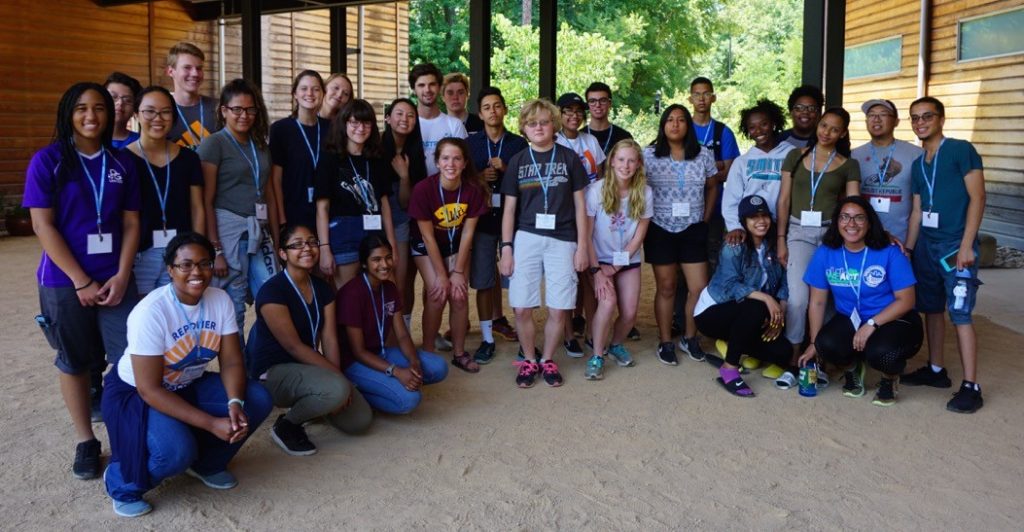Students from NC and NY come together to explore the role of communities in addressing climate change
 Twenty-five high school students from central North Carolina and New York City came together at UNC-Chapel Hill in July to learn about the role of community resilience in addressing extreme weather events, the importance of protecting vulnerable populations during such events and the nature of the grassroots work that needs to be done to protect human health during extreme weather events. In addition, students met researchers from the UNC-Chapel Hill Center for Environmental Health and Susceptibility (CEHS) who are at the forefront of studying air quality and human health. This three-day event was part of a year-long youth science enrichment program, the Climate Leadership and Energy Awareness Program (Climate LEAP). Since 2009, Climate LEAP has engaged over 250 rising 9th-12th grade students in learning about the interconnected topics of climate and energy. The 2017 program takes students on a deeper dive into exploring the human health impacts of climate change and the nuances of community resilience.
Twenty-five high school students from central North Carolina and New York City came together at UNC-Chapel Hill in July to learn about the role of community resilience in addressing extreme weather events, the importance of protecting vulnerable populations during such events and the nature of the grassroots work that needs to be done to protect human health during extreme weather events. In addition, students met researchers from the UNC-Chapel Hill Center for Environmental Health and Susceptibility (CEHS) who are at the forefront of studying air quality and human health. This three-day event was part of a year-long youth science enrichment program, the Climate Leadership and Energy Awareness Program (Climate LEAP). Since 2009, Climate LEAP has engaged over 250 rising 9th-12th grade students in learning about the interconnected topics of climate and energy. The 2017 program takes students on a deeper dive into exploring the human health impacts of climate change and the nuances of community resilience.

Students use online mapping tools to display climate and health trends
The 2017 Climate LEAP is administered by the CEHS Community Outreach and Engagement Core (COEC) and the UNC-Chapel Hill Institute for the Environment and is the result of a partnership with COECs from the NIEHS Center for Environmental Health in Northern Manhattan at Columbia University and the Harvard T.H. Chan School of Public Health-NIEHS Center for Environmental Health. This collaboration is further strengthened by the participation of three local partners, including: the Alliance for Climate Education in North Carolina; WE ACT for Environmental Justice (WE ACT) in New York; and Boston Children’s Hospital and the Region 1 New England Pediatric Environmental Health Specialty Unit (PEHSU) in Massachusetts.
Program staff partnered to develop and implement a youth program that would 1) increase high school students’ knowledge of climate change and potential health impacts and build their capacity to participate in the development of locally relevant solutions and 2) create networking opportunities among youth and public health professionals to enhance understanding of how locally relevant solutions may be applicable more widely and to increase students’ knowledge of public health careers. Cultivating climate literacy among youth positions them to develop solutions and advocate for actions that prepare communities to adapt to climate change, mitigate emissions and ultimately protect human health and well-being, with an eye towards protecting the most vulnerable populations.
Dana Haine is an educator for the UNC CEHS COEC and the Program Director for Climate LEAP. According to Haine, what made the 2017 edition of Climate LEAP so exceptional was that “the collaboration between COECs and their community partners enabled us to offer an engaging and highly interdisciplinary program that effectively combined STEM learning opportunities with social justice education to prepare students to address climate change impacts in their communities.”
Financial support for this program is provided by the Burroughs Wellcome Fund and by NIEHS. Learn more about Climate LEAP here.
